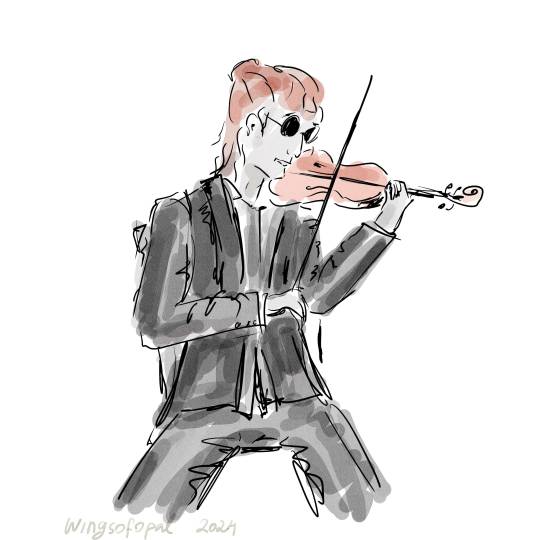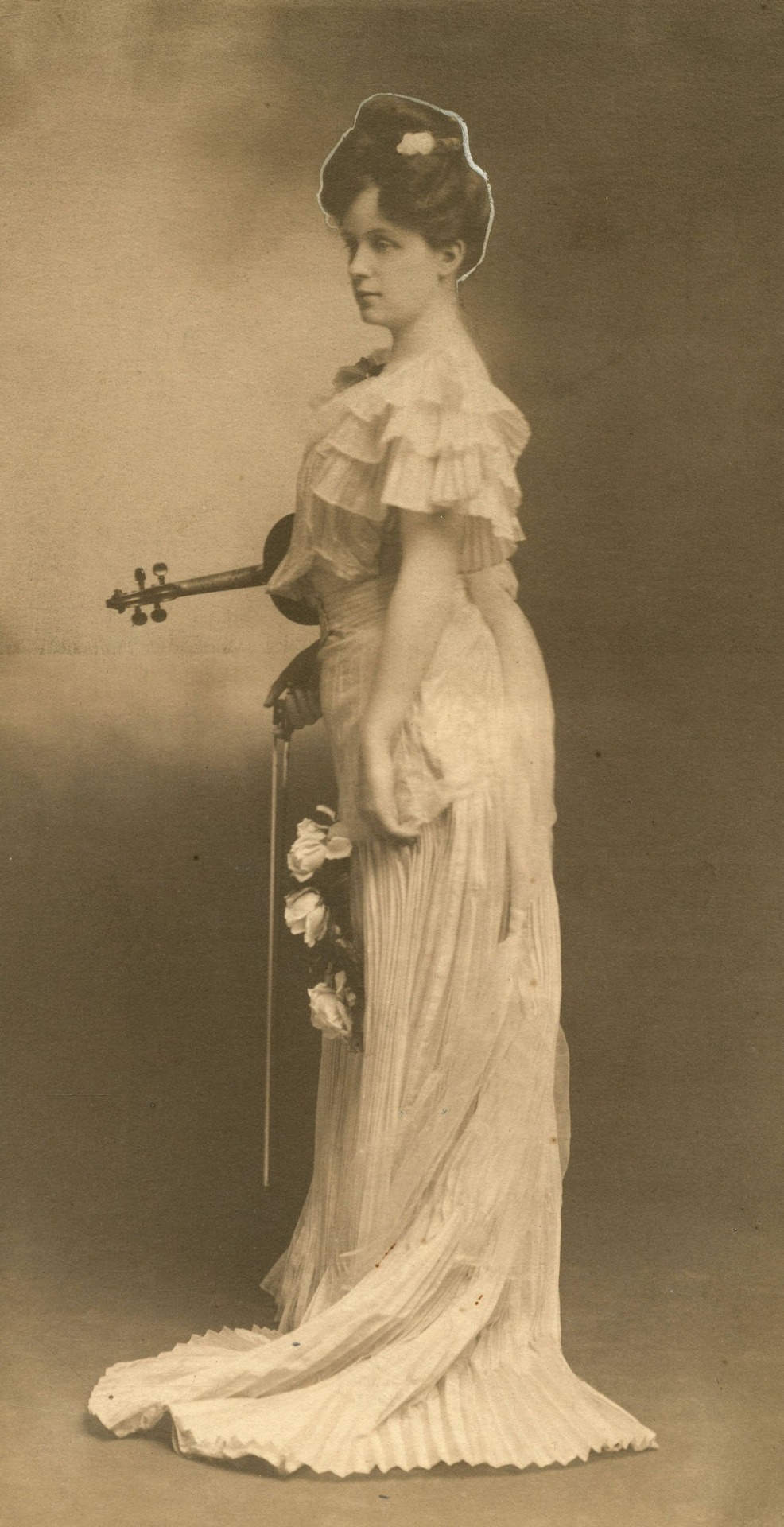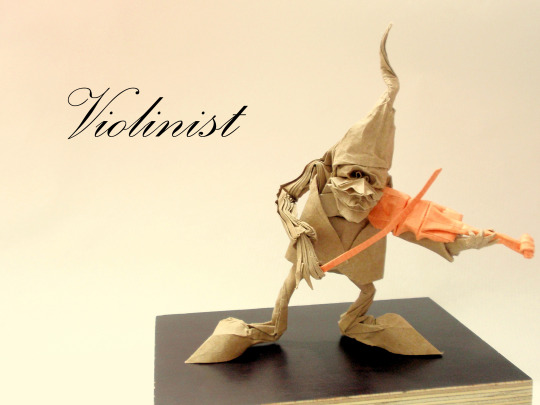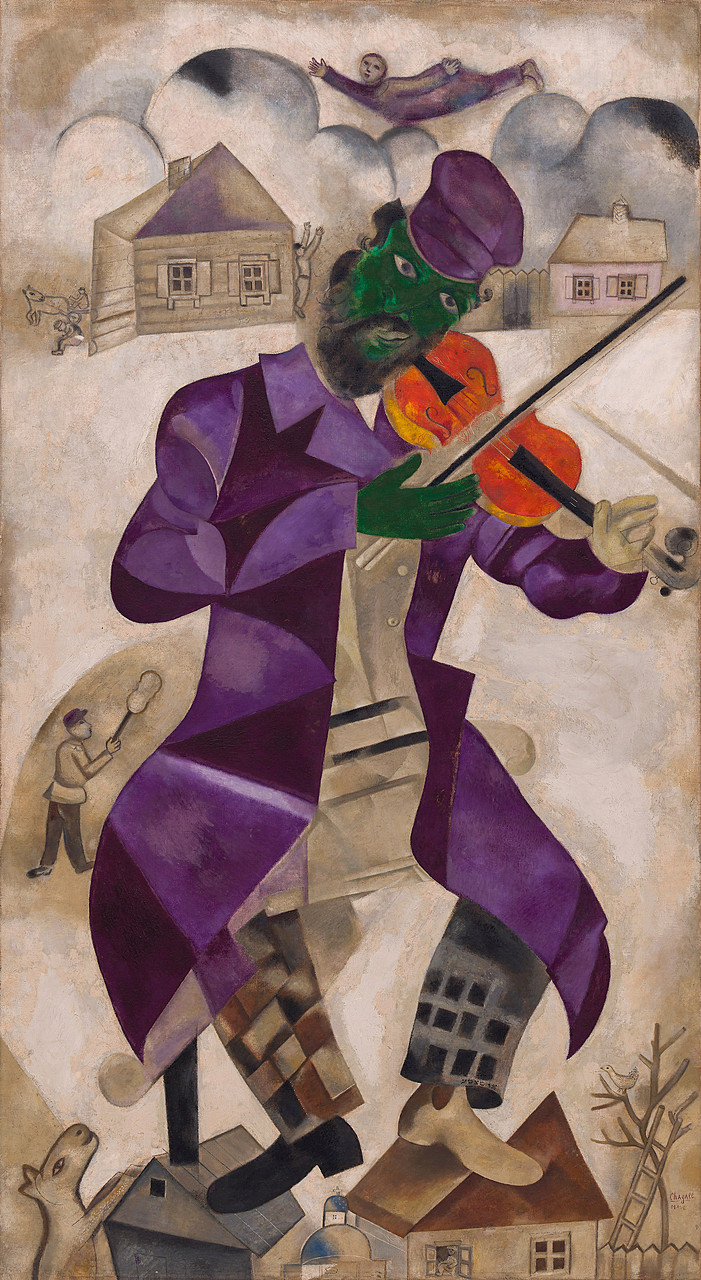#classical violinist
Video
undefined
tumblr
The day after performing at Lincoln Center I’m in rehearsal again 🥰🎻✨ Feeling grateful & happy to be doing what I love. Happy Palm Sunday, my friends ❤️🙏🏼
(Sidebar: I haven’t gotten all the photos yet from yesterday. They’re coming!)
_______
📸 (cover): Karsten Moran
#violin#solo violin#violinist#Palm Sunday#Lent#thank God#classical violin#classical violinist#lindsey stirling#itzhak perlman#hilary hahn#fiddle#short hair#glasses#aviator glasses#smile#beautiful#beautiful violin#strings#orchestra#cello#viola#peaceful#beauty
3 notes
·
View notes
Text
great, now i cant lie to my teacher that ive been practicing my etudes because I LOST THE SHEET MUSIC AND I CANT FIND IT AND I DONT EVEN KNOW WHAT IT'S CALLED I JUST KNOW IT'S BY SEVCIK AND IT'S INSUFFERABLY LONG
imslp cant save me this time
#classical musician#classical violinist#my violin teacher is gonna kill me i told her i have the sheet music and now i dont
3 notes
·
View notes
Text

OTD in Music History: Delusional and suffering from advanced tertiary syphilis, master “lied” (German art song) composer Hugo Wolf (1860 – 1903) is taken to an insane asylum in 1897.
Although he spent most of his life in Vienna, Wolf was actually born in what is now Slovenia (conductor Herbert von Karajan [1908 - 1989] was distantly related to him on his maternal side).
A musical prodigy, Wolf became good friends Gustav Mahler (1860 - 1911) when they both attended the Vienna Conservatory together -- but Wolf was dismissed before graduation after he blew up one day and informed the Director that he was "forgetting more than he was learning." (Later in life, Wolf tried to save face by claiming that he actually quit before they could expel him...)
Wolf spent the next decade suffering in grinding poverty, eking out an itinerant bohemian lifestyle. He taught sporadically; wrote vitriolic music criticism that made him many powerful enemies in the conservative Viennese musical establishment; and, occasionally, actually got around to composing.
Over the course of his career, Wolf wrote nearly 300 German art songs. But of his first 100 -- i.e., those dating from his early period -- he ultimately considered only a handful to be truly "worthwhile." It would not be until he blossomed into artistic maturity in 1888 that he began to produce a torrent of widely-acclaimed masterpieces.
The mature Wolf excelled at creating vocal melodic lines that express every emotional nuance of a given poetic text. The atmosphere of his lieder ranges from tender love lyrics, to biting satirical humor, to deeply felt spiritual suffering. The vocal-melodic line is often combined with strikingly original harmonies in the piano accompaniment, resulting in a remarkable fusion of music and speech. Indeed, many lieder aficionados consider Wolf to be the single greatest practitioner of this rather rarified art form.
PICTURED: A lovely original decorative bookplate that was personally designed by Wolf to be inserted into volumes in his library.
In his published criticism, Wolf had some particularly nasty things to say about Johannes Brahms (1833 – 1897):
"Through [the D-Minor Piano Concerto] blows an air so icy, so dank, so misty, that one's heart freezes and one's breath is taken away. One could catch a cold from it. Unhealthy stuff!"
"Brahms has, to be sure, never been able to raise himself above the level of mediocrity... but such nullity, emptiness, and hypocrisy as prevail in [his Fourth Symphony] have come to light in none of his previous works. The art of composing entirely without ideas has decidedly found its most worthy representative in Johannes Brahms!"
Etc, etc.
Suffice to say, statements like these not go over very well in Vienna, where Brahms (who also lived and worked there) was generally hailed as the world’s greatest living composer. The backlash was swift and severe; one of the most infamous examples arose when Wolf approached Arnold Rose (1863 – 1946), the concertmaster of the Vienna Philharmonic, and asked if he would arrange for the orchestra to play through Wolf's symphonic poem "Penthesilea" (one of the relatively few orchestral works that Wolf ever penned). Rose no doubt took great pleasure in letting him dangle for several weeks before sending him the following devastating letter:
"Mr. Wolf: We have attentively looked through your work, and we have unanimously resolved to leave the score for you with the doorman of the Opera House. Will you please have the kindness to retrieve it as soon as possible? I fear that he may easily mislay it… With kindest greetings, Arnold Rose."
("Penthesilea" did eventually receive a playthrough under legendary conductor Hans Richter [1843 – 1916]. Allegedly, however, before he even picked up his baton, Richter loudly announced for all present to hear that he was only doing it because he wanted to hear for himself “the work of the man who dares to write in such a way about *Meister* Brahms.")
But the final word should go to Wolf, explaining (in a private letter written to a close friend) his own thoughts on that particular art that he excelled at above all else -- songwriting:
"There's something gruesome about the intimate fusion of poetry and music -- actually, the gruesome role belongs only to the latter. Music has decidedly something of the vampire about it. It claws at its victim relentlessly, and sucks the last drop of blood from it. One could also compare it with a greedy suckling, who relentlessly demands fresh nourishment from its mother and thereby becomes plump and fat while its mother's beauty withers away. But this comparison is valid only with regard to the effect that music, in league with poetry, has upon the public... Indeed, nothing has shocked me, personally, more than the groundless injustice of the preference of one of these arts over the other..."
#Hugo Wolf#Wolf#composer#classical music#classical composer#music history#classical studies#piano#classical pianist#violin#classical violinist#music theory#maestro#absolute music#opera#bel canto#aria#chest voice#Italian Serenade#classical#classical musician#classical musicians#musicians#musician#concerto#concert#historian of music#classical voice#diva#prima donna
1 note
·
View note
Text
Antonio Vivaldi (1678-1741) - Sonata for Violin and Basso continuo in e-minor, RV 17a, IV. Allemanda. Performed by Fabio Biondi, violin & direction, and Europa Galante on period instruments.
#antonio vivaldi#baroque#classical music#violin sonata#violin#period performance#period instruments#baroque music#sonata#chamber music#vivaldi#baroque violin#violinist#strings
75 notes
·
View notes
Text
Look man, I KNOW classical composer Tumblr exists because those classical composer memes have to be coming from somewhere. But how on earth do I hop on it!? Is it like one of those moving elevators, where you have to step on quickly and hope you come out!? To me it's like the backrooms or something. Do you have to type in some sorta key, is it going to ask me to match these concertos by key signature to delve inside the secret catacombs of classical composer-blr? Will there be a 7 dwarves mining cart roller coaster waiting there except instead of the dwarves its the ducking CLASSICAL COMPOSERS!? What, do I gotta send pictures of my violin-ridden hands as proof, do I gotta submit cat boy Mozart fanart/fics,
CLASSICAL COMPOSER BLR WHERE ARE YOU HIDING!?
(I'm currently on amrev/frevblr seriously send help)
#amrev#frev#classical composers#classical composer#wolfgang amadeus mozart#Mozart#dead serious#asking for a friend#pride#cat boy#uwu#send help#pls answer#18th century#colonial history#austria#they're all austrian#mostly#pls#actually help#bozart#dirty bozart shippers please help me inknow you have the passkey#uwu...#3am thoughts#its 3am#no i really wanna find it somewhere#Disney#violinist#orchestra#orchestra kid
53 notes
·
View notes
Text

LOOOOOK!!! OMG!!! @wingsofopal made an art of Violinist Crowley from my fic, Play for me the Music of your Heart and it's absolutely gorgeous!!! I love the whimsical, watercolor wash style! Thank you so much!
#good omens#good omens fanart#good omens fan fiction#good omens au#anthony j crowley#violinist crowley#classical music#musicians au
68 notes
·
View notes
Text

Mary Davenport-Enberg (1881-1951)
Madame Davenport-Enberg was an American violinist, composer and conductor. Making history in the year 1914, she had found the mixed-gender Bellingham Symphony, making her the first woman to lead a professional orchestra in the United States.
#when I lived in Spokane Washington as a child she was an important figure to know about as she had settled in Spokane as a kid#so I wanted to share a little bit about her !#I see sources say 1880 and some say 1881 but I’m going with 1881#washington state#classical music#Washington history#spokane washington#women’s history#women in history#women composers#women musicians#vintage photography#Mary Davenport-Enberg#Mary Davenport Enberg#violin#violinist#history#frostedmagnolias
27 notes
·
View notes
Text




tender june 🎀
#Spotify#messy aesthetic#chaotic aesthetic#chaoscore#spotify#dark academia vibes#dark academia aesthetic#chaotic academia#chaotic moodboard#my photos#dark academia#musician#music#musicians#violin#violinist#viola#violist#classical music#theatre#orchestra#orchestra kid
14 notes
·
View notes
Text

Origami Dwarf. Designed by Eric Joisel, folded by me using the wetfolding technique with a square of waterproof craft paper. The violin was folded with a square of standard craft paper.
#origami#paper folding#art#artists on tumblr#origamiart#papercraft#dwarf#gnome#fantasy#fantasy art#medieval#middle earth#tolkien#violin#violinist#music#classic#classical music#musician#musiclife#handmade#diy#etsy#etsyshop#etsyseller#etsystore#etsysale#etsyfinds
28 notes
·
View notes
Text
One thing I will NEVER understand is perfect pitch. How can you listen to a note and tell me that's an A. Impossible. Just no way. And I say this as someone who has played the violin for 17 years (though not very well as you might imagine)
32 notes
·
View notes
Text
If the RCTs have a theme (not like, the theme songs from the Safety Series), what would be its general vibes, genre, and instruments used.
I can imagine Amber having violins in her soundtrack, while Jin could use some turmoil of pressure in there. Helly's will have some feel of childhood things, while at the same time overshadowed by having to have responsibility and a purpose.
For the rest? Idk tbh 🤷🏽
#robocar poli#ranto rento#gog i havent used that for a long time#sorta????#totally not thinking of composing a horrible soundtrack with the skills of an amateur violinist and a “vibes” guy in one#trust me i never composed music before /srs#classical notes already scare me and so does the interface of FL Studio
12 notes
·
View notes
Text
Alexander Glazunov, Leopold Auer, St. Petersburg 1912
#classical music#opera#music history#bel canto#composer#classical composer#aria#classical studies#maestro#chest voice#Alexander Glazunov#Leopold Auer#violinist#violin#classical musician#classical musicians#cassical history#opera history#history of music#history#historian of music#musician#musicians#diva#prima donna#footage#Leopold von Auer
10 notes
·
View notes
Text
Johann Sebastian Bach (1685-1750) - "Double Concerto" for Violin, Violoncello piccolo, Strings and Basso continuo in d-minor, after BWV 1043, I. Vivace. Performed by Giuliano Carmignola, violin, Mario Brunello, violoncello piccolo, and Riccardo Doni/Accademia dell'Annunciatata on period instruments.
#johann sebastian bach#baroque#classical music#violin#cello#orchestra#period performance#period instruments#baroque music#double concerto#concerto#bach#strings#string orchestra#violoncello piccolo#violinist#cellist
54 notes
·
View notes
Text

Marc Chagall
Green Violinist
1923-1924
Oil on canvas
#classic art#classic academia#classical art#light academia#oil painting#oil on canvas#painting#20th century art#1920s art#cubism#cubist#marc chagall#green violinist#fiddler on the roof
23 notes
·
View notes
Text

Okay, here’s my catch-up sketch from Day 10 of Just Draw June: Concerts, Musicals or Plays because I couldn’t not draw ‘Play for me’ Crowley 🥰
#good omens#good omens fanart#anthony j crowley#violinist crowley#classical music#levs draws#just draw june
25 notes
·
View notes
Text
youtube
Dear listener, I tried listening to six full hours of mainstream radio this week again. I tried, oh, sweet merciful Jesus, I tried. Lo, I have at this point all but confirmed that modern radio is a steaming pool of liquid dogshit. Given a second appraisal, it’s dogshit with a candy-coated hardshell for ease of ingestion! The disheartening repetition, the complete lack of cutting-edge creativity and genuine emotion, ten to twenty ass-ramming commercials in a row only to come back to the feckless frenzy of fail that comprises the vast, vast majority of modern music? It was all terribly grating, and somehow the music was even worse. As soon as I couldn’t take a millisecond more of the doldrums of modern radio, I went to YouTube and listened to two straight and comparatively blissful hours of immortal work by Antonio Vivaldi. So, get into the time machine again with me dear listener, and set course for the early 1700’s, a time when radio didn't exist! The social standards might not have been top-notch, but the powdered wigs were undeniably gorgeous, and the quality of the music… to die for!!!

As anyone who comes from a musical family has likely experienced, Vivaldi had the principles of composition fused to his DNA, and perhaps even down to the subatomic level with the help of his father. Having trained for priesthood in his early years, Vivaldi instead gradually gravitated toward a now celebrated career in music. Becoming an elite level violinist under the tutelage of his father Giovanni Battista, whom he regularly toured Venice and played duelling violins with, this legend of orchestra developed an immense capacity for transforming the basics of music into something so immensely interwoven and sublime that very few can or will ever dare so much as approach the legitimate majesty of his body of orchestral work. Known as something of an Italian religious dogmatist, his calling to the church and desire to be a priest secured him the nickname ‘Il Prete Rosso’ (The Red Priest) because he was a ginger, or in modern politically correct parlance… a natural red head. During a three-decade long gig serving as Master of Violin at an historical Vincentian orphanage, Ospedale della Pietà, Vivaldi managed to gather inspiration and organize his most emotionally powerful compositions. I could probably add a lot of unnecessary details here, but his greatest and most everlasting works are part of his ‘The Four Seasons’, a set of four violin concertos that are meant to express nearly the precise sensations and emotions of summer, winter, autumn, and spring. If you smash play on the above track you will be treated to Presto (from the Summer section), a song you probably know or have heard before. Presto means ‘quickly’ in Italian and is performed at one of the quickest speeds a human can possibly play music (second only to prestissimo speed, I think). Vivaldi also had a strange disease throughout all his life which many historians suspect might have been severe asthma. And with his penchant for taking numerous ‘leaves of absences’ to tour the world and develop an international reputation, this clearly mega-talented rockstar of yester-century ended up spending all the money he earned during his lifetime. Sadly, after approaching the end of his life and skidding through a decade’s worth of career decline, all accounts show that he died completely broke, having spent what little money he had left on multiple assistants that circumnavigated him through his now dire and at the time completely untreatable health issues. Vivaldi isn’t my personal favorite composer of all-time, I’ll leave that distinction to Bach (who himself was inspired by Vivaldi). But his works live on to this very day because he accomplished exactly what he strove to do; embody the excellence of execution in his craft to produce works that bring us together as human beings and sometimes inspire a rare spark of imagination to propel us to create the very best work we can possibly bring forth.
youtube
Right above this paragraph is a live variation of The Four Seasons, a classic musical work of art and transcendent beauty that I cannot recommend highly enough. Vivaldi sure did one thing that modern, corporately funded, concentrated and even desperate bands just can’t… and that is actually innovate. He had immense natural technical skills, had them brought to bloom by his family and his own efforts, and he ended up creating over 500 instrumental and choral works, plus about 40 operas. Have *you* created 500 instrumental and choral works and 40 operas!? Didn’t think so. So, get to work on that! And join me next time for some jaunty Brahms. Image source: https://www.craiyon.com/image/dPwZA5VRRTawSH1T9Sslcw
#vivaldi#antonio vivaldi#music on tumblr#classical music#the four seasons#presto#music from the 1700's#audio video#music video#audio on tumblr#classical composer#composer#baroque#legend#violinist#orchestra#Italian composer
24 notes
·
View notes